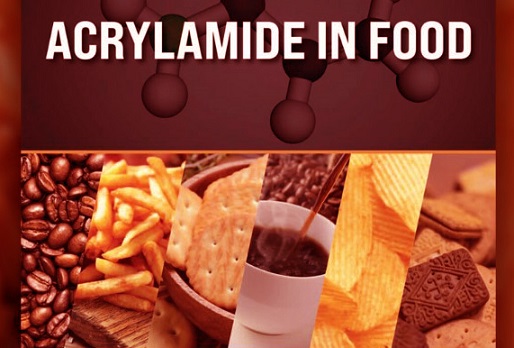Nikhil Prasad Fact checked by:Thailand Medical News Team Dec 29, 2024 3 months, 2 weeks, 4 days, 2 minutes ago
Medical News: Unveiling the Link Between Acrylamide and Heart Health
Acrylamide, a chemical compound formed in certain foods during high-temperature cooking, has long been under scrutiny for its potential health impacts. Predominantly found in fried, baked, or roasted items such as potato chips, bread, and coffee, acrylamide is produced through the Maillard reaction - a process involving amino acids and sugars when heated above 120 degrees Celsius. While its carcinogenic properties in animals have been widely studied, its effects on human cardiovascular health remain largely unexplored. This
Medical News report delves into a groundbreaking systematic review examining the association between acrylamide exposure and cardiovascular risks.
 Acrylamide Exposure and Its Impact on Cardiovascular Health
Research Scope: Institutions and Methodology
Acrylamide Exposure and Its Impact on Cardiovascular Health
Research Scope: Institutions and Methodology
The systematic review was conducted by researchers from several esteemed institutions, including the Department of Preventive Medicine and Public Health at Universidad Autónoma de Madrid, CIBERESP in Spain, and the Instituto de Investigación Sanitaria Aragón, among others in Spain. By reviewing data from 28 studies across various populations, the researchers aimed to clarify acrylamide’s role in influencing cardiovascular mortality and risk factors such as hypertension, diabetes, lipid metabolism, and obesity.
This extensive review analyzed literature from databases like PubMed, Medline, and Scopus without restrictions on language or publication year. Metrics of acrylamide exposure, such as hemoglobin adducts (HbAA and HbGA) and urinary metabolites, served as biomarkers for short-term and long-term exposure. The Joanna Briggs Institute tools were employed to assess bias, ensuring robust and credible findings.
Key Findings: How Acrylamide Influences Cardiovascular Health
Cardiovascular Mortality
Among six studies investigating cardiovascular mortality, the review revealed a nuanced picture. In populations with high acrylamide exposure, such as hyperglycemic individuals in the U.S., acrylamide adducts (HbAA) were linked to an 84% increased risk of cardiovascular mortality. Similarly, dietary acrylamide in French women was associated with a 33% higher mortality risk, emphasizing the potential dangers of acrylamide-rich diets. Contrastingly, some studies, such as those involving U.S. male workers, reported no significant association, underscoring the complexity of this chemical’s effects.
Cardiovascular Risk Factors
-Hypertension and Blood Pressure: Acrylamide’s metabolite, glycidamide (HbGA), was found to elevate systolic blood pressure (SBP) by approximately 0.49 mmHg among adolescents in the U.S. Although HbAA showed no significant direct association, the conversion to glycidamide could mediate cardiovascular damage.
-Lipid Metabolism: Acrylamide exposure significantly altered lipid profiles. HbGA was posit
ively associated with higher levels of total cholesterol (6.60 mg/dL), low-density lipoproteins (LDL), and triglycerides (TG), while inversely linked to high-density lipoproteins (HDL). This imbalance underscores its role in contributing to atherosclerosis and other cardiovascular conditions.
-Obesity and Body Composition: Acrylamide’s effects on body composition varied. While HbAA was linked to reduced prevalence of abdominal obesity (64% lower), HbGA demonstrated the opposite - increasing abdominal obesity prevalence by 78%. Such disparities highlight the complex metabolic pathways influenced by acrylamide.
-Diabetes and Glucose Metabolism: Acrylamide’s impact on glucose metabolism was significant yet contradictory. HbGA was associated with elevated glucose levels and higher diabetes prevalence, while HbAA showed an inverse relationship, suggesting protective effects. This paradox points to glycidamide’s heightened toxicity as a metabolite.
Implications for Public Health
These findings point to acrylamide exposure as a potential public health concern, particularly for individuals consuming diets high in fried or processed foods. Glycidamide’s genotoxicity and mutagenicity emerged as critical factors exacerbating cardiovascular risks. Furthermore, vulnerable populations, such as individuals with existing metabolic disorders, may face heightened risks, necessitating targeted interventions.
Recommendations for Future Research
Despite its robust methodology, this review identified several gaps warranting further investigation. The interplay between acrylamide metabolism and genetic factors, such as variations in the CYP2E1 enzyme responsible for glycidamide conversion, requires deeper exploration. Additionally, longitudinal studies are essential to establish causal relationships between acrylamide exposure and cardiovascular outcomes. These efforts could guide policy changes and food industry practices aimed at reducing acrylamide levels in consumer products.
Conclusion: What This Means for Everyday Consumers
The systematic review offers compelling evidence linking acrylamide - especially its metabolite glycidamide - to increased cardiovascular risks. This chemical’s ubiquitous presence in common foods underscores the need for heightened public awareness and preventative measures. As individuals, reducing consumption of fried and processed foods can significantly mitigate exposure. On an institutional level, stricter regulations on food processing methods may help curb acrylamide formation, benefiting public health.
Ultimately, while acrylamide’s impact on cardiovascular health is not entirely conclusive, its potential risks are significant enough to warrant caution. As research progresses, consumers, policymakers, and the food industry must work together to address this hidden threat in our diets.
The study findings were published in the peer-reviewed journal: Nutrients.
https://www.mdpi.com/2072-6643/16/24/4279
For the latest on Heart Health, keep on logging to Thailand
Medical News.
Read Also:
https://www.thailandmedical.news/news/study-shockingly-finds-that-plant-based-milks-contain-toxic-alpha-dicarbonyl-compounds-and-the-carcinogen-acrylamide
https://www.thailandmedical.news/news/thailand%E2%80%99s-office-workers-branded-coffee-drinking-culture-will-be-a-boom-to-the-local-healthcare-segment
